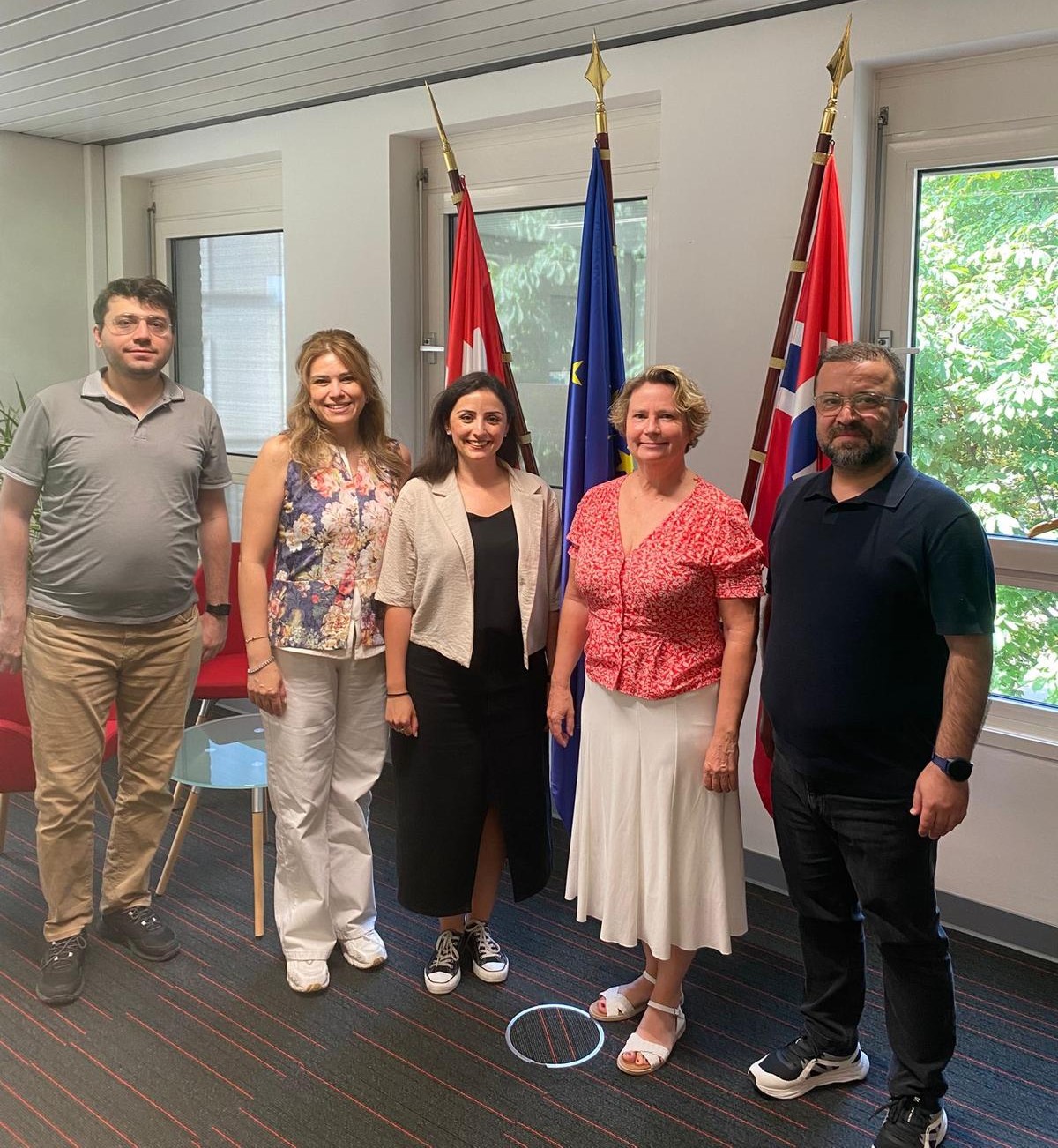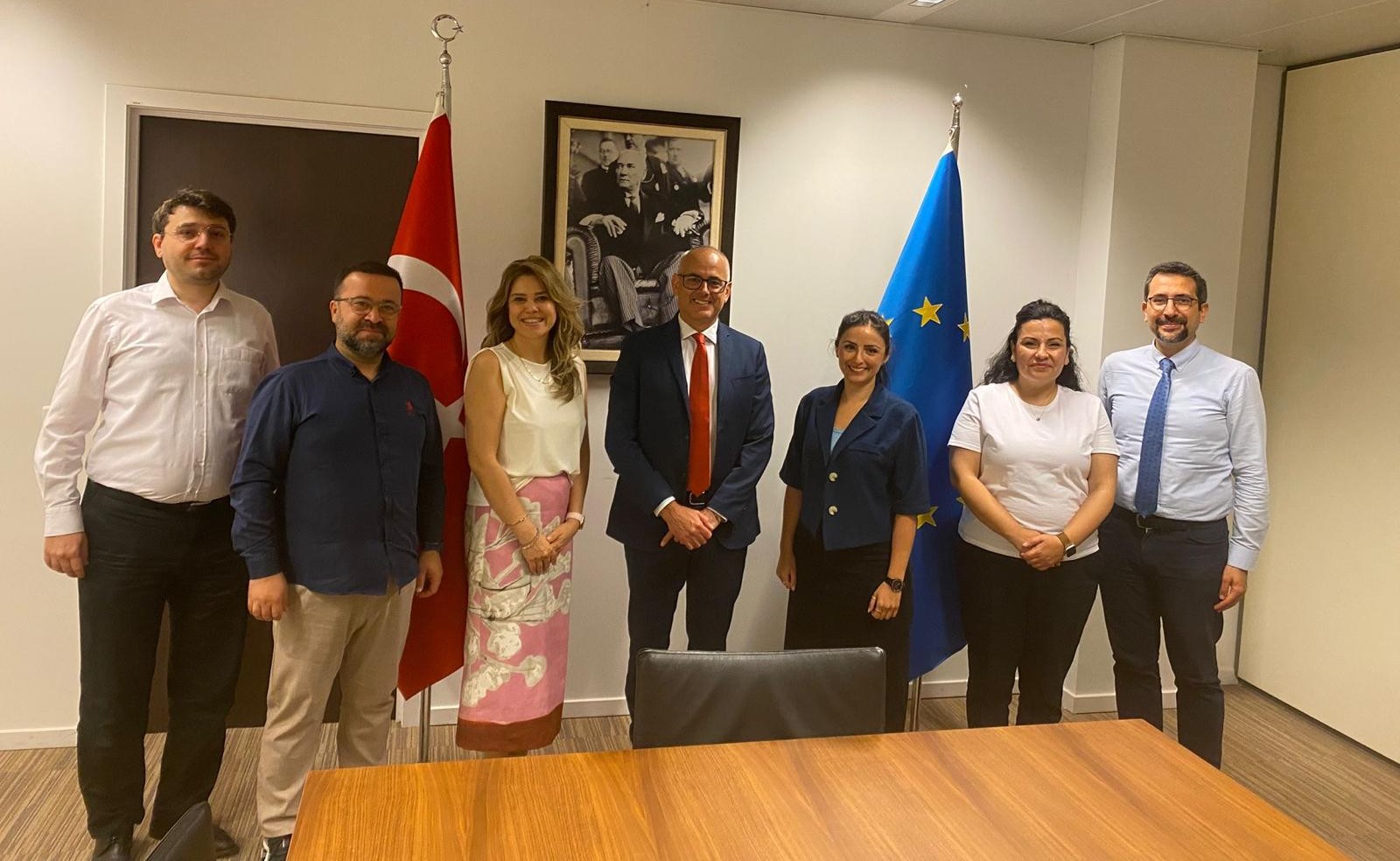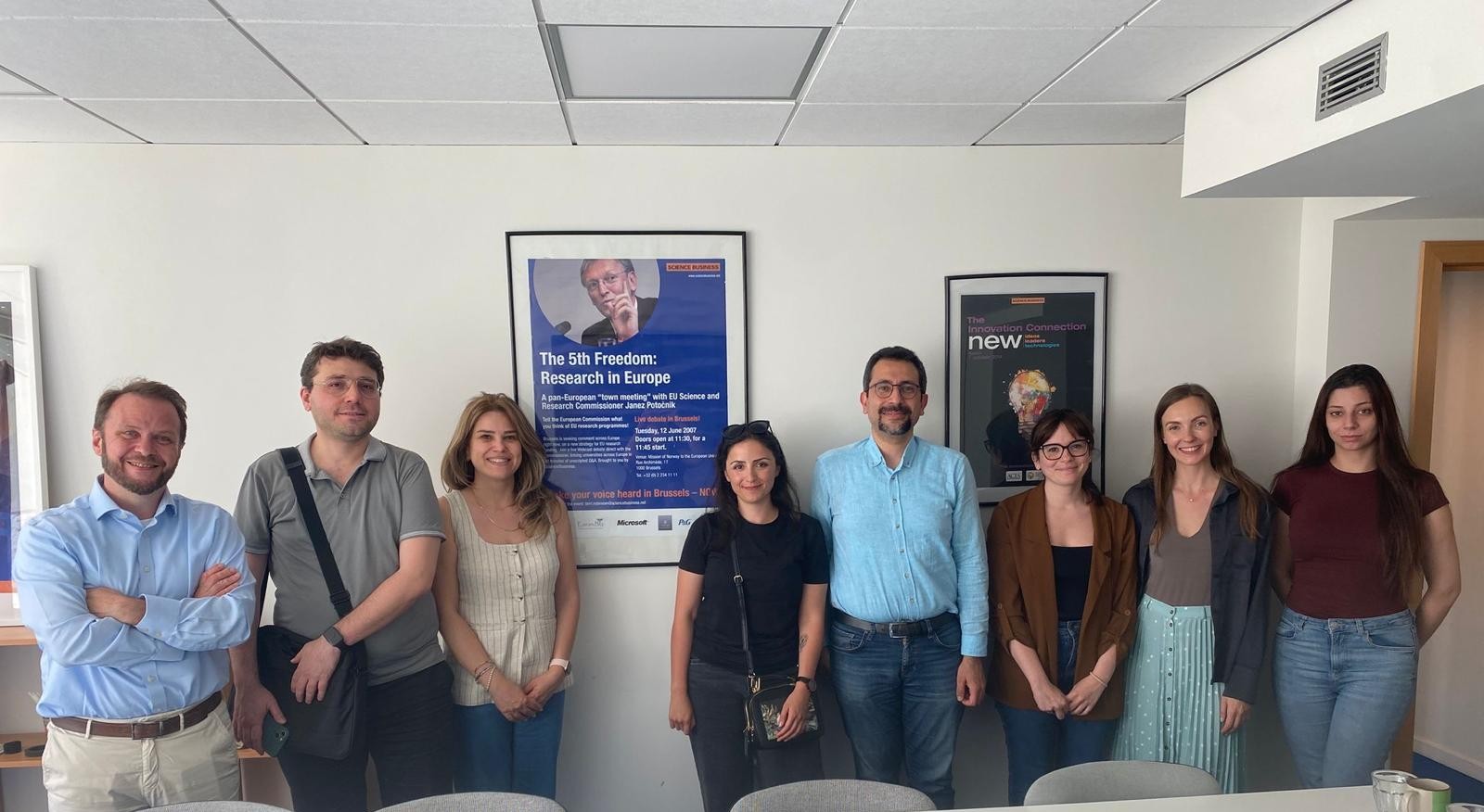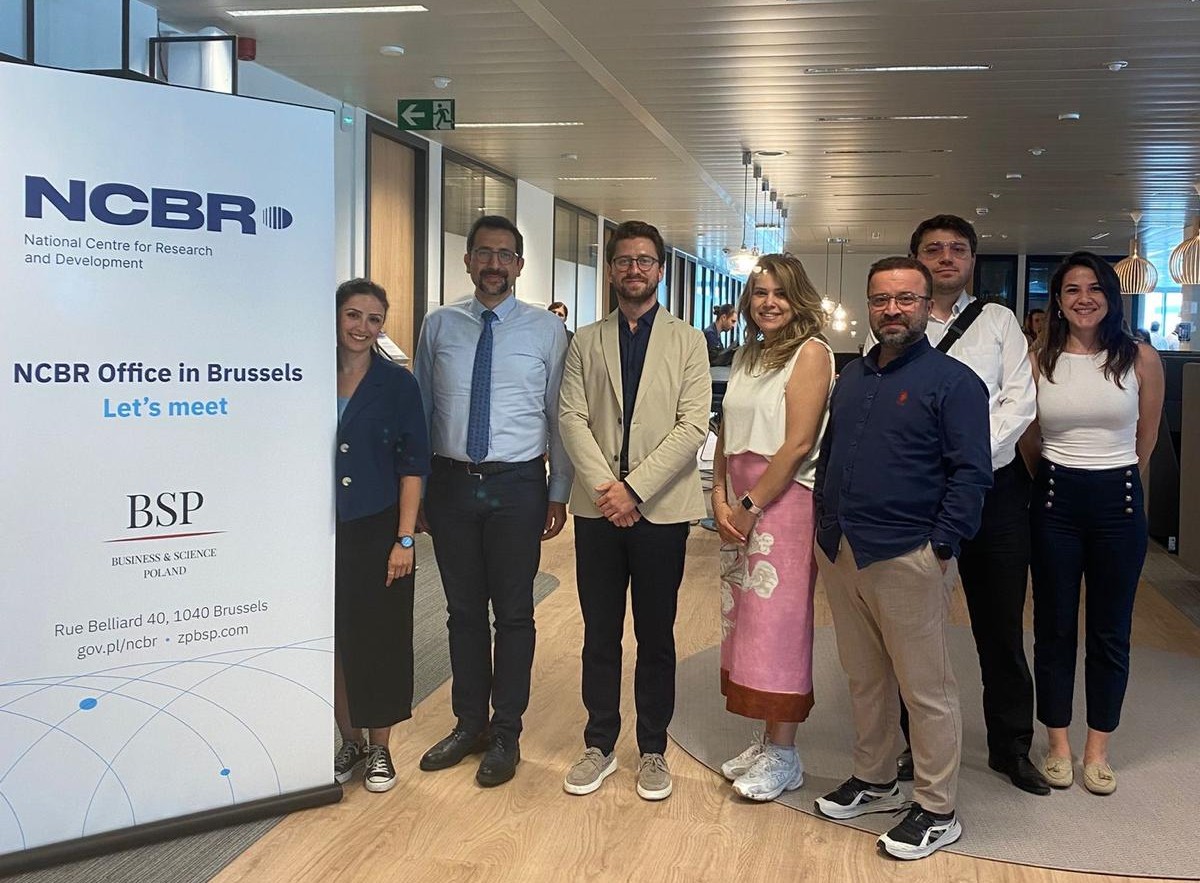
A delegation composed of TÜBİTAK National Contact Points (NCPs) completed an intensive study visit to Brussels between 16–20 June 2025, where they engaged with leading institutions in the European research and innovation ecosystem. Aimed at enhancing Türkiye’s strategic and effective participation in Horizon Europe Programme, the visit made significant contributions to both individual capacity development and institutional representation. The International Study Visit also enabled TÜBİTAK National Contact Points to establish direct contact with important and competent research and innovation actors in Europe; and provided important information on lobbying strategies, stakeholder engagement, and the functioning of Brussels-based representation structures.
The programme began with a meeting at Science|Business, a prominent Brussels-based media and networking organization that brings together stakeholders from science, industry, and policy. The delegation gained valuable insights into how research policy is shaped and how communication networks function in this process.

On the second day, the delegation visited the UK Research Office (UKRO), which has long-standing experience in supporting UK institutions in European Union (EU) programmes. The session focused on UKRO’s mission, objectives, and the services and activities it offers to national stakeholders. Later the same day, the delegation met with XR4Europe, one of the most extensive European networks in digital and extended reality technologies. Discussions focused on how XR is being integrated into sectors such as education, healthcare, and culture, and how these developments align with Horizon Europe Programme priorities.
The day continued with a meeting at the National Centre for Research and Development (NCBR), Poland’s Brussels-based representation. During the meeting, the delegation was informed about how Poland effectively engages with EU stakeholders, supports national research institutions, and aligns its priorities with Horizon Europe objectives.
On the third day of the study visit, the delegation visited the Research Council of Norway Brussels Office, where experiences were shared regarding the institution’s establishment process, legal status, services provided, and its strategic relations with the European Commission and other EU institutions. The information obtained regarding institutional support mechanisms and representation models has been of a nature to contribute to the development of similar structures in Türkiye.

On the same day, an exchange of views was held with APRE, Italy’s national R&I agency, on topics such as APRE’s activities in Brussels, institutional relations, networks, policy, advocacy, and events. The meeting also provided valuable guidance for Türkiye in developing similar liaison models.
On the fourth day, the TÜBİTAK delegation participated in the Türkiye–EU Joint Committee Meeting at the European Commission, where policy-level research and innovation collaboration opportunities were discussed. The high-level meeting included important messages on how Türkiye’s rising profile in Horizon Europe Programme could be made more visible in Brussels.
On the final day, a meeting was held with IGLO (Informal Group of RTD Liaison Offices), hosted by CZELO (Czech Liaison Office for Education and Research in Brussels), to explore best practices related to national representation structures across Europe.

All meetings held with these institutions made significant contributions to establishing strategic partnerships, modeling good practices, and providing more qualified guidance to researchers in Türkiye. Furthermore, through this comprehensive study visit, valuable outcomes were obtained in terms of enhancing the visibility of Türkiye’s steadily growing success profile within the Horizon Europe Programme, gaining a better understanding of the Brussels-based mechanisms, and strengthening the capacity to provide strategic guidance to the national research community. The institutional experiences and good practice examples acquired during the visit paved the way for concrete steps toward Türkiye’s more effective integration into the European Research Area, while also serving as a guiding reference for preliminary evaluations concerning the possible establishment of a Turkish liaison office in Brussels.
